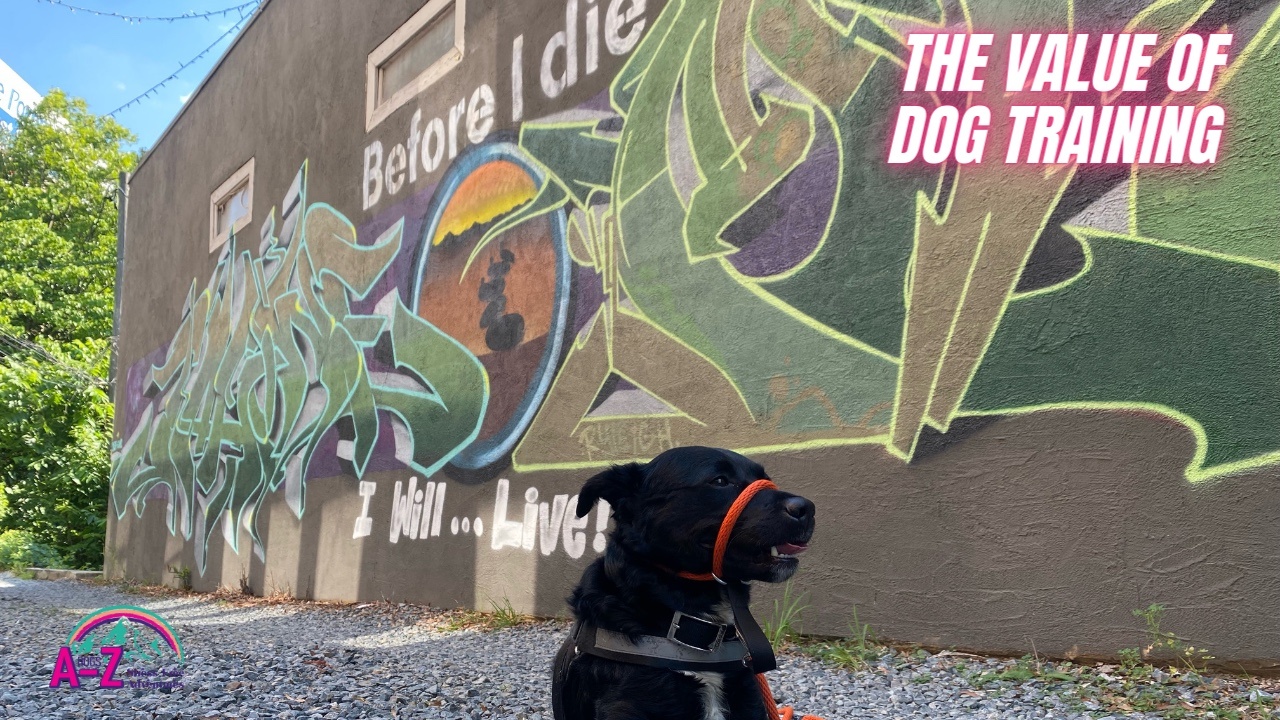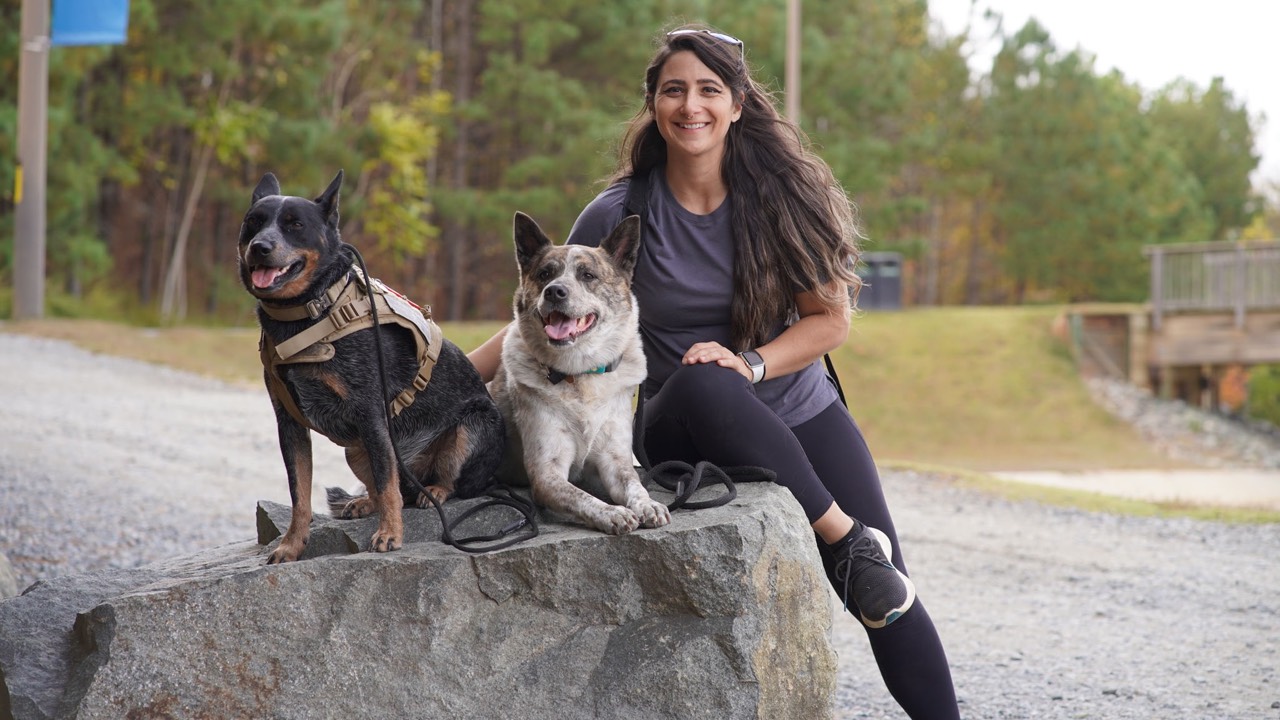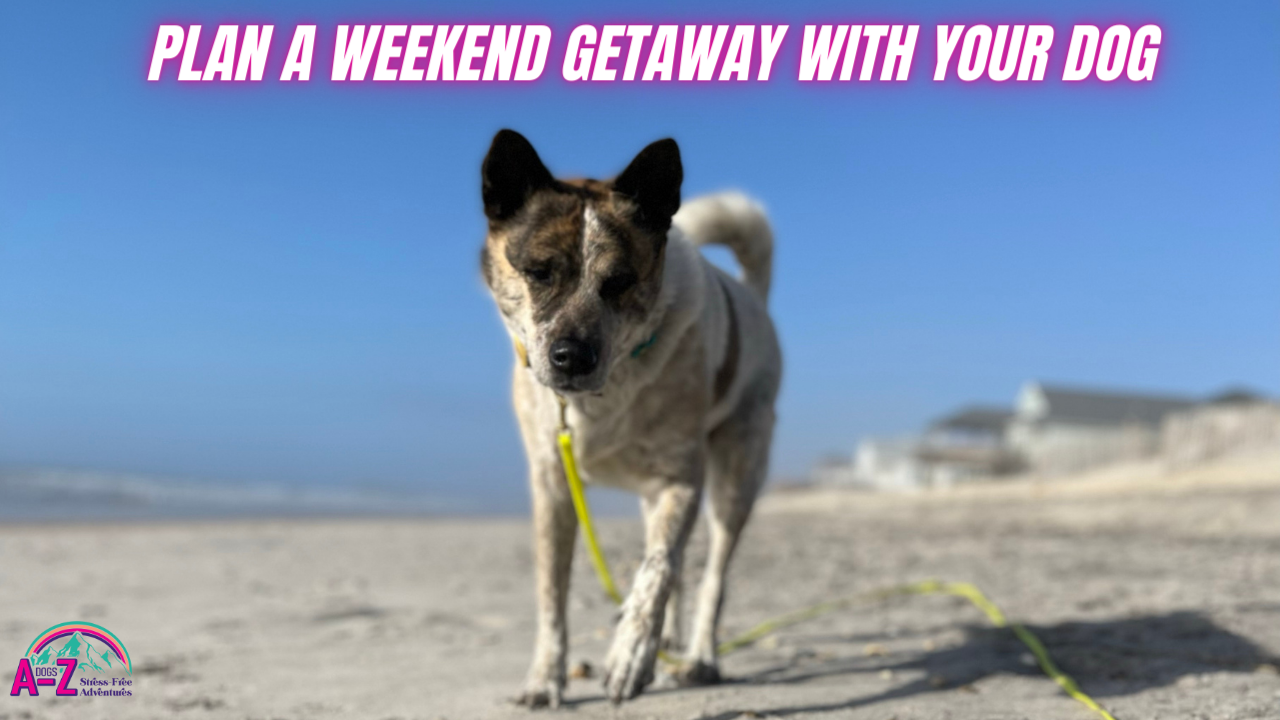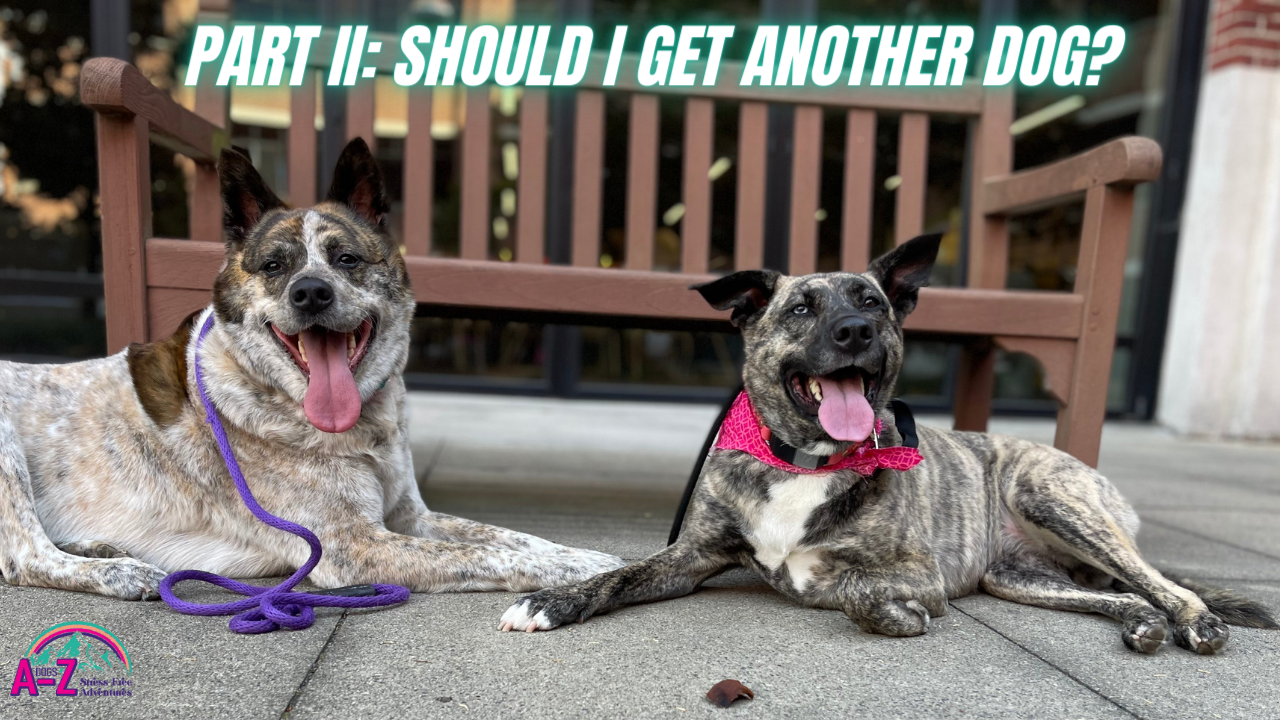The Value of Private Training
Jun 03, 2022
What Else Does a Dog Trainer Teach?
Basically, your dog will learn how to function in life. Once you and your dog can speak the same language, you’re on track to be BFFs. But hopefully, you won’t develop some obsessive codependent relationship and never leave home… right?
A dog trainer will help your dog feel more comfortable being handled, especially by strangers. And we’re not just talking about that weirdo at the park who tries to pet without permission.
There will be situations when someone new has a legit reason for touching your dog. Think visits to the veterinarian or groomer. You’ll learn to use reward-based training to bribe - um, persuade - your pup that being touched is okay.
You’ll also learn more advanced obedience commands. “Sit”, “down”, “leave it”, “come”, “stay”, and a few others are the bare minimum that your dog needs to know.
But how fucking cool would “go potty” be when it’s freezing out and you want your pup to hurry it up? And dorky and basic as it seems, “paw” still feels a little impressive.
Your trainer will help you learn to follow through, be consistent, and feel confident in your newly minted role as leader of the pack.
Dog Trainers Train People?
Abso-freakin-lutely. They’re training you to train your dog.
One of the most important things you’ll learn is how to read dog body language. It’s the primary way that they communicate, so you’re totally screwed if you misinterpret your dog’s mood.
You’ll learn how a dog’s carriage, tail, mouth, and ears can tell you exactly what it’s thinking without so much as a word. Thank God, since they don’t say words.
Your trainer will also observe your body language, voice, and tone. You may feel in control, but sometimes it takes a little outside perspective to see that your tone lacks confidence or you’re giving off some bad juju vibes. Your energy directly influences your dog’s behavior, so balancing calm with assertive is the best way to get the action you want.
You’ll learn what it means to reward good behavior. Like, duh. You give a treat, you say “good boy”, you do a little dance.
Great. But your trainer gets a little more nuanced than that. Ever seen a toddler scream like a banshee until they get what they want? Dogs know that trick too. Negative attention can be better than no attention… which makes it feel a little like a reward.
Also consider that giving a treat as part of positive reinforcement training shows your dog that food is a reward for doing the right thing. When your dog begs for food… and you give in… you feel me? Your dog just learned begging is good.
It’s the little things that count, and there’s always more to learn. Take full advantage of Q&A time during each session to ask if you’re ever unsure.
Your trainer is there to help, and a good trainer will be open to giving plenty of useful advice to reinforce the lesson of the day.
Group Dog Training Classes
Once your dog has its initial vaccinations, it’s time to get your socialization on. Group dog training classes are an awesome way to get your puppy feeling comfortable with new people and other dogs. It’s basically preschool for pups. Figure out how to play well with others while learning the fundamentals.
Group training sessions happen in a controlled environment, but there are still distractions that mimic real life. You and your dog will learn to communicate through basic verbal and nonverbal commands.
The best part is getting to know other pet owners who are in the same boat. It’s comforting to know that you’re not doing anything wrong. You just haven’t learned the techniques to get it right - and you’re not the only one.
Plus, group training is a pretty good motivator to actually do your homework between sessions. Not that it’s a competition, but who wouldn’t want to be crowned best in class?
One-on-One Dog Training Sessions
Maybe you’re a bit antisocial and not into the idea of bonding with other dog people. Maybe you’re not even a dog person - you’d prefer to identify as a person who loves their dog. Do you, friend.
But this isn’t all about you. Trainers do encourage group classes, because socializing your dog is absolutely, 100% non-negotiable for raising a well-adjusted dog that feels safe and doesn’t act a fool around people and other pets.
However, one-on-one (should we say two-on-one?) classes with your dog trainer can be taken concurrently or as the next step in advancing that good dog education.
Some dogs do learn best in a more individualized training environment. This is especially true if they’re skittish around other dogs or seem to be suffering from doggie ADD.
It’s important for dogs to learn socialization young, but there are ways to incorporate that while keeping training sessions distraction-free to start.





